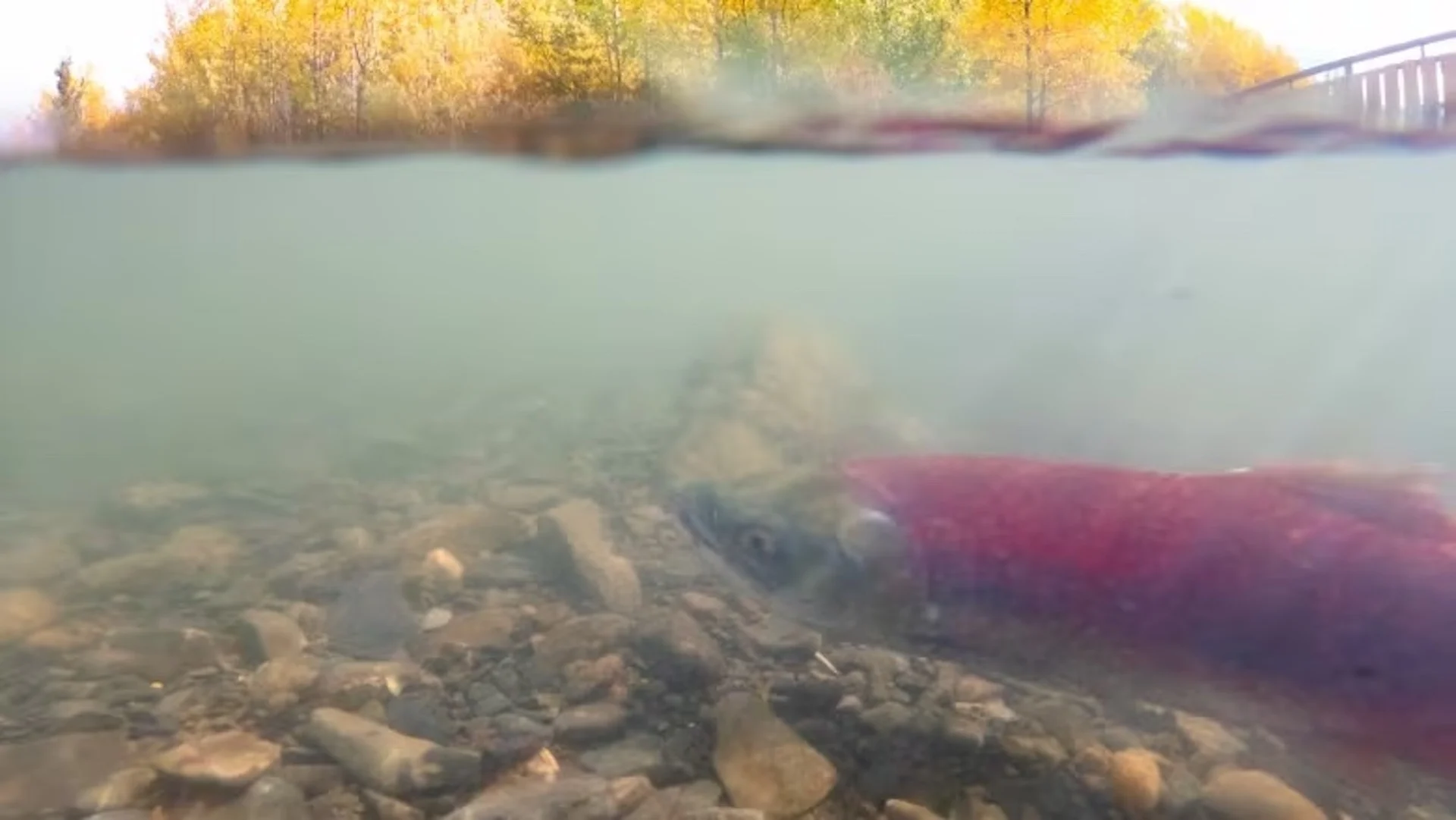
Great sockeye salmon run expected in Yukon's Alsek River, but it's not clear why
After decades of low numbers, this summer's sockeye salmon run on Yukon's Alsek River is expected to be above average for the second year in a row. What's behind the rebound is still a mystery.
Last year, Fisheries and Oceans Canada (DFO) expected 11,000 sockeye salmon to return to the Alsek to spawn, but the actual number was more than double that prediction. It was the highest escapement seen in the area in more than two decades.
DFO expects this year's runs could see nearly as many sockeye in the river, which flows from the Yukon through northern B.C. to Alaska.
SEE ALSO: Drought conditions threatening B.C. salmon as river levels drop
"We're not anticipating we'll meet last year's numbers," said Tom Buzzell, a transboundary river manager for DFO.
"Our early-run sockeye numbers are very low, but coming in for the late run sockeye, which will run later into August and into September, we have a just slightly above-average forecast of 30,000 fish coming in."
Buzzell says it's unclear why numbers have bounced back recently.
"It could have been a larger ocean survival," he said. "But no real strong answers."

(Chris Corday/CBC News)
Sockeye runs on the Alsek began dropping off in the 1990s, remaining consistently low until last year.
And British Columbia sockeye runs are currently dipping due to warmer-than-usual waters there. The province has restricted fishing of sockeye on the Fraser River to help conservation efforts this year.
Numbers there are still much larger than in the Yukon. About 4.8 million sockeye swim the Fraser each year on average. Only a third of those are predicted to make it up the river this year, still far more than the 30,000 expected in the Alsek.
Subsistence fishing of sockeye is currently open on the Alsek River though. The Champagne and Aishihik First Nations have fished sockeye on the Alsek and its tributaries for thousands of years.
And depending on actual numbers this year, recreational fishing in the area could also open by mid-August, Buzzel said.
That has Eric Schroff excited. He's executive director of the Yukon Fish and Game Association.
WATCH: See the world's first wild salmon marine conservation farm in action
"I've fished over there a couple of times over the past decade. And it's great just to look forward to a potential opening this year," he said in an interview. "For many, many people in Yukon, it's the only chance they have to fish for salmon in the Yukon."
Schroff says low numbers in recent decades have made recreational sockeye fishing uncertain from year to year. He says not many people fish recreationally for sockeye when it's open, but it's a special experience for those who do.
"People are very careful about how many fish they catch, and treasure the experience and hope they can do it again next year."
Thumbnail courtesy of Matt Meuse/CBC.
The story was written by Ethan Lang and published for CBC News. It contains files from Liam Britten.










